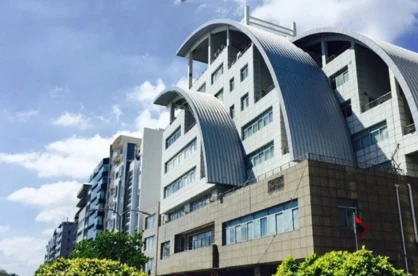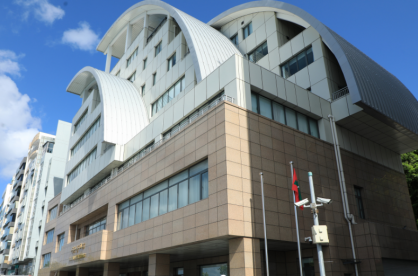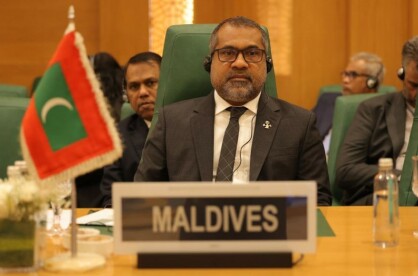The pensions burden
The Maldives is not adequately prepared for an ageing population.

The Maldives is not adequately prepared for an ageing population.

The Maldives has an ageing population, an inevitability that the country needs to be prepared for. The National Bureau of Statistics estimates that the median age of the local Maldivian population by 2054 will be 37, while the ageing index, i.e., the number of elderly people per 100 children will be 90.
Given the prospects for an increasingly ageing population, it is important to ensure that a system is in place to enable the elderly to live a dignified life. One of the ways to do so is to implement a retirement pension scheme, where workers set aside a portion of their incomes over their working life for use when they retire.
The Maldives earlier had a pension scheme solely for state employees that paid a certain percentage of their salaries at the end of 20 or 40 years of service. The payments under this scheme were miniscule and not inflation indexed. It also excluded a large portion of the population as it did not extend to the private sector, and restricted employees from moving out of the public sector, if they wanted to be eligible for the pension.

The government introduced a modern pension system in 2009, with the enactment of the Maldives Pension Act and introduction of two pension schemes - the Old Age Basic Pension and a contributory defined benefit Maldives Retirement Pension Scheme.
The Old-Age Basic Pension (BP), which right now is MVR5,000, is granted to everyone who reaches the pension age, which is currently stipulated as 65.
The Act, however, states that this amount shall be amended, where the amount received as pension under the act, or any other pension is less than twice the amount of Basic Pension, then 50 percent of that pension will be deducted from the BP and the balance paid.
This basically means that everyone who turns 65 does not automatically get a payment of MVR5,000 per month from the government as BP. Deductions are made based on any other pensions that the individual gets, including the MRPS or other pensions, such as those paid for 20 or 40 years of service.
The MRPS is a mandatory contribution-based pension scheme, applicable to all registered employees and employers, where 7 percent of basic salary is deducted, and matched by the employer. Those self-employed, however, are required to contribute the full 14 percent themselves. The Maldives Pension Administration Office (MPAO) is charged with the responsibility of investing these funds to ensure a payout on retirement.
Increase in number of beneficiaries / enrolled:

The success of the pension schemes in the Maldives has been mixed. The BP, while providing a safety net for those 65 years of age not covered by the MRPS or those who were close to retirement when the new scheme was introduced, has its drawbacks. Especially given the way the scheme has been introduced and promoted, mostly by politicians.
The notion of an Asaasee Pension was first introduced in the country by the Nasheed administration, to ensure that the elderly, once they reached an age where they could not work, has a safety net to fall back on. This was what was initially incorporated into the Pension Act as the Basic Pension for 65 plus. There is, hence, the expectation that every Maldivian is entitled to MVR5,000 on retirement as a payment from the government. Most do not understand why then, it should be scaled back in effect to reflect other payments from the state or the MRPS.
The BP is also paid in a blanket manner, without any screening for income other than pension payments. This has led to scenarios where those who can well afford a living and have other savings, availing the BP. One example of this is an incumbent minister stating in his asset declaration that he receives the BP, bringing into question whether the spirit of the scheme is being adhered to.
Consider the following scenario: Based on the NBS projections of population, and a simple calculation not taking into account claw-backs, it is estimated that MVR5.3 billion will have to be paid from the national budget by 2054 on Basic Pensions, if the is no reform in this scheme, and not considering the claw-back that will come in to play with the MRPS fully functional. As of end 2020, the annual payment for BP was at MVR1.03 billion, so this does not seem unlikely.

The scheme has also discouraged the self-employed from contributing to the MRPS, since they understand that whether they contribute anything or not, they are eligible to receive the BP. In fact, if they do contribute, any pension payments when they reach 65 years of age will in effect be deducted [based on the calculations above] from their BP payments. So, it is actually more beneficial for them not to contribute to the MRPS, invest in a private scheme, and receive both the pension payouts from the private scheme AND the BP payment in full from the State.
With the MPRS, members of the public have questioned as to why they need to wait until retirement to avail the funds. This may in part be due to the earlier culture cultivated around the government's previous provident fund scheme, where state employees could opt to set aside a percentage of their salaries, which was then matched by the government. The government had allowed state employees to withdraw funds for major expenses or needs. This is perhaps being confused with the objectives of the current pension fund, which is explicitly set up as a retirement fund.
Politicians have, over the time since the MPRS was introduced, pushed for withdrawing or using the pension funds, which have led to funds being allowed to be withdrawn or used as mortgages for housing and Hajj payments. While these are immediate needs that need to be met, consideration also must be given to the continuity of the scheme. Perhaps the government needs to look at other options to meet these needs than eroding savings for the future that we can use in our old age.
The MPAO Annual Report also states that under an agreement with the Ministry of Finance, it disbursed what is stated as "State Other Pension," which amounted to MVR292 million in 2020 to over 7,000 beneficiaries monthly on average. For a government that has enacted and is implementing a national pension scheme, this brings into question what these other state pensions are and why the government will run separate schemes for a specific cadre of employees when it should in reality be encouraging contributions to the national scheme.
Several institutions of the state have effectively set up a “double-dip” system whereby, on top of their MRPS benefits, the state will have to increasingly budget for a lifetime of monthly payouts. Considering these ‘pensions on top of pensions’ does not come out of an investment portfolio, this means it places undue burdens on the state budget — amounting to the direct opposite of what the state pension scheme was set up to achieve.
Institutions such as the Anti-Corruption Commission, Civil Service, Department of Judicial Administration, Elections Commission, Islamic University of Maldives, Judicial Service Commission, Majlis, Maldives Correctional Service, Maldives Customs, Maldives National University, Maldives Police Service, and even specific government agencies, such as the President’s Office, receive preferential benefits under individual regulations, when compared to ‘regular’ retirees.
However instead of creating exceptions, upon exceptions, what needs to be cultivated is a savings culture, where one does not have to depend on their children or the State when old, and live out life peacefully and in dignity.



